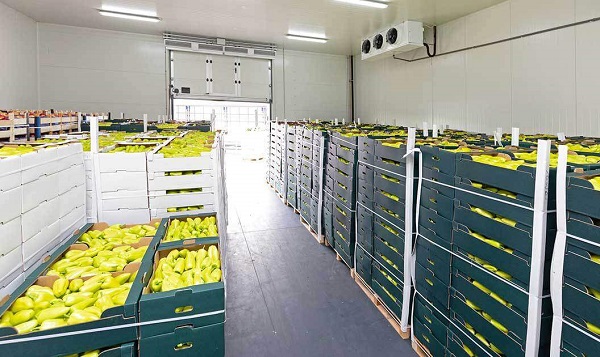Agriculture is the backbone of many African economies, employing millions and providing food security for the continent.
However, inefficiencies in agricultural supply chains often lead to significant post-harvest losses, affecting both farmers’ incomes and consumers’ access to fresh produce.
This article explores the challenges faced in agricultural supply chains across Africa and highlights innovative solutions to enhance efficiency, reduce waste, and improve food security.
Understanding Agricultural Supply Chains
Agricultural supply chains encompass all processes involved in the production, processing, distribution, and consumption of food. From planting seeds to delivering fresh produce to consumers, each stage of the supply chain is crucial in ensuring food quality and availability. However, many African countries face several challenges in streamlining these processes.
Key Challenges in Agricultural Supply Chains
- Inadequate Infrastructure: Poor road networks, lack of storage facilities, and insufficient transportation options hinder the movement of goods from farms to markets. These infrastructural issues contribute to high transportation costs and spoilage of perishable goods.
- Limited Access to Technology: Many smallholder farmers lack access to modern agricultural technologies that can improve productivity and efficiency. This includes everything from advanced irrigation systems to data-driven agricultural management tools.
- Market Information Gaps: Farmers often struggle to access vital market information, such as pricing, demand trends, and buyer requirements. This lack of information can lead to overproduction or underproduction, resulting in financial losses.
- Fragmented Supply Chains: Many agricultural supply chains in Africa are characterized by numerous intermediaries, leading to inefficiencies and increased costs. These fragmented systems can create barriers for farmers in reaching consumers directly.
Innovative Solutions for Improvement
Despite these challenges, innovative solutions are emerging to enhance agricultural supply chains across Africa. Here are several key strategies:
1. Investing in Infrastructure
Improving infrastructure is essential for reducing post-harvest losses and ensuring efficient transportation. Governments and private sector stakeholders can collaborate to develop better road networks, storage facilities, and transportation systems. For example, the African Development Bank has initiated various projects aimed at enhancing rural infrastructure to support agricultural growth.
2. Embracing Technology
Adopting technology is vital for improving agricultural practices and supply chain management. Digital platforms and mobile applications can provide farmers with access to real-time market information, agricultural best practices, and weather forecasts. Initiatives like e-wallets and mobile banking also empower farmers to receive payments promptly, reducing reliance on cash transactions.
3. Strengthening Cooperative Models
Cooperatives can play a significant role in consolidating smallholder farmers’ produce, enabling them to access larger markets and negotiate better prices. By working together, farmers can reduce costs related to transportation and storage, increase bargaining power, and enhance access to resources and training.
4. Enhancing Traceability and Transparency
Implementing traceability systems, such as blockchain technology, can improve transparency in the supply chain. Consumers increasingly demand to know the origins of their food, and blockchain can provide immutable records of the journey from farm to table. This level of transparency can also help to ensure food safety and quality.
5. Promoting Sustainable Practices
Sustainability is essential for long-term agricultural viability. By adopting sustainable farming practices, such as agroecology and permaculture, farmers can improve soil health, increase biodiversity, and reduce dependency on chemical inputs. Programs that educate farmers on sustainable practices can lead to more resilient agricultural supply chains.
Case Studies of Success
1. The Farm to Table Initiative in Kenya
In Kenya, the Farm to Table initiative connects smallholder farmers directly with urban consumers through an online platform. This model reduces the number of intermediaries, ensuring farmers receive fair prices while providing consumers with fresh produce. The initiative also includes training programs on sustainable farming practices and access to financing for farmers.
2. The Cold Chain Solution in Nigeria
In Nigeria, the introduction of cold chain logistics has revolutionized the transportation of perishable goods. Companies are investing in refrigerated trucks and storage facilities, reducing spoilage rates for fruits and vegetables. This development not only increases the shelf life of products but also improves farmers’ incomes by minimizing post-harvest losses.
Conclusion
Improving agricultural supply chains across Africa is essential for enhancing food security, increasing farmer incomes, and promoting sustainable development. By addressing challenges such as inadequate infrastructure, limited access to technology, and fragmented systems, stakeholders can create more efficient and resilient supply chains. The combination of innovative solutions, strong cooperative models, and sustainable practices can pave the way for a prosperous agricultural sector that benefits farmers and consumers alike.
As Africa continues to invest in its agricultural future, the journey from farm to table will become increasingly streamlined, ensuring that food reaches those who need it most while empowering the continent’s farmers to thrive.
Also Read
How GPS-enabled tractors are changing the face of farming
The rise of smart farming: Precision tools for African Farms
